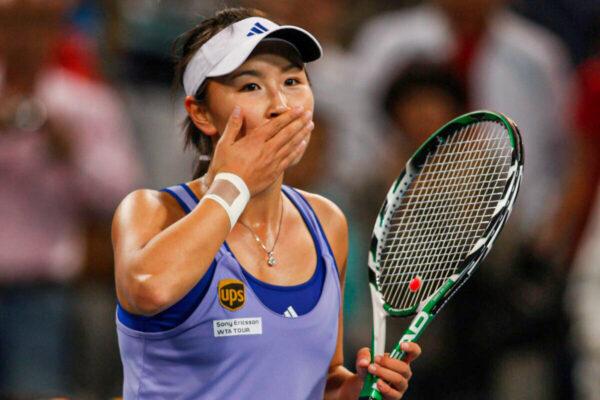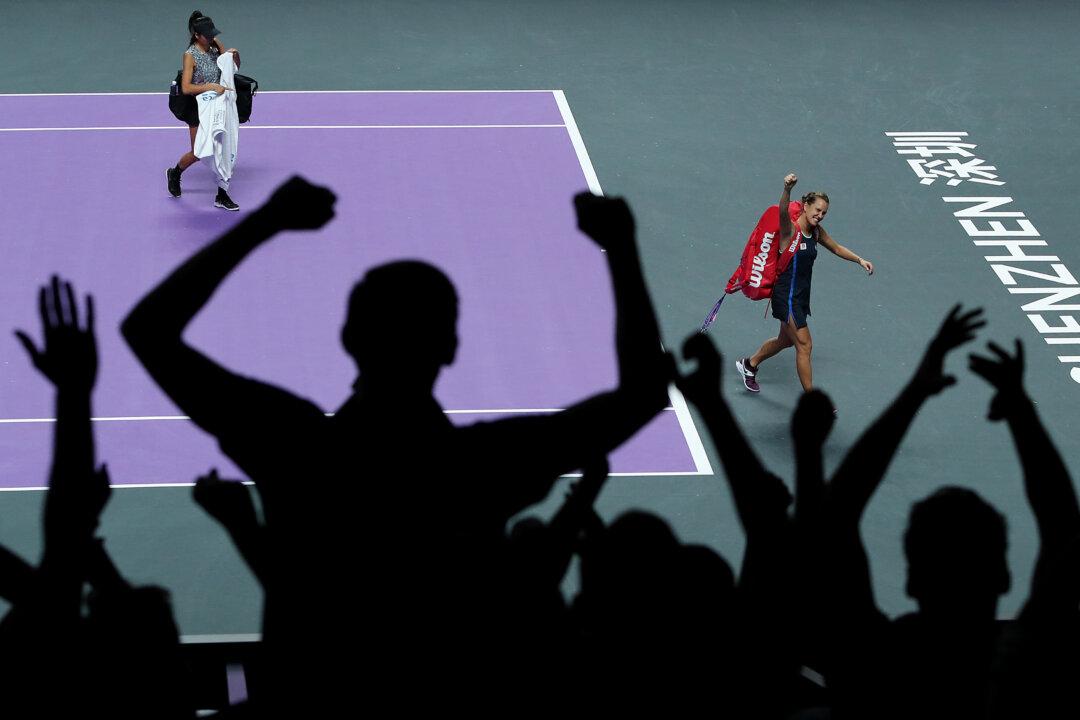The Women’s Tennis Association’s (WTA) pushback against China’s authoritarian disappearance of tennis player Peng Shuai could lead to cancellations of events beyond 2022.
“The leadership in China has not addressed this very serious issue in any credible way. ... None of this is acceptable nor can it become acceptable,” Simon said in a Dec. 1 statement, calling for a full and transparent investigation.
The chairman had previously warned he would pull WTA events out of China unless Peng’s safety could be assured.
China is a source of billions of dollars in income for various sports entities based elsewhere, including the WTA, the NBA, and the International Olympic Committee (IOC). The nation typically hosts about 10 women’s tennis tournaments each year, including the prestigious season-ending WTA Finals that were scheduled to be held in the city of Shenzhen until 2028.

“We haven’t canceled, as of yet, but we’re prepared to get to that point,” Simon said in the Dec. 1 video call. “And that’ll be a point of discussion at some point: Where do you get to cancellation? Is it 2022 only? Is it for the future? I mean, those are all questions that will come down the road.”
The move to halt the tour’s play in China—which could cost the WTA millions of dollars—also came with the backing of its Board of Directors, players, tournaments, and sponsors.
“This is an organizational effort that is really addressing something that’s about what’s right and wrong.” With regrets over the announcement, Simon said Beijing had left the WTA with no choice.
“We still haven’t been able to have that conversation, to have the comfort that what we’re seeing isn’t being orchestrated, to date. The second element of that is that we want a full and transparent—without any level of censorship—investigation on the allegations that were made,” Simon told AP.

‘Right Side of History’
A number of U.S. lawmakers and organizations cheered the WTA for standing up for more than just tennis, but also human values.The U.S. Tennis Association commended Simon and the WTA, posting a statement via Twitter that read: “This type of leadership is courageous and what is needed to ensure the rights of all individuals are protected and all voices are heard.”
International Tennis Federation spokeswoman Heather Bowler said the Board would meet the following day to discuss the matter.
WTA founder Billie Jean King said the organization was on “the right side of history.”
“I applaud Steve Simon and the WTA leadership for taking a strong stand on defending human rights in China and around the world,” said King, a 12-time Grand Slam winner and women’s tennis pioneer.
She said, “This is yet another reason why women’s tennis is the leader in women’s sports.”

Suzanne Nossel, the CEO of PEN America, a non-profit organization based in New York, praised the WTA’s “show of spine,” drawing a comparison to the IOC, which “[played] along with ... Beijing.”
The IOC said in a Dec. 2 statement that it held a second video call with Peng, the three-time Olympian, assuring its “wide-ranging support,” regular contact, and a personal meeting in January.
The group described its efforts to support Peng as a campaign of “quiet diplomacy.”
Both statements made no direct mention of her sexual assault claims.

China’s foreign ministry spokesman Wang Wenbin did not comment on the WTA’s move during a regular briefing on Dec. 2, but said China “opposes the politicization of sports.”
Beijing is set to host the Winter Games beginning on Feb. 4.
The whereabouts of the accused 75-year-old Zhang Gaoli, who had allegedly forced Peng to have sexual relations with him, hasn’t been reported or publicly investigated so far. The former Chinese vice president stepped down from the powerful seven-member Politburo Standing Committee about three years ago and hasn’t spoken publicly about the incident.




